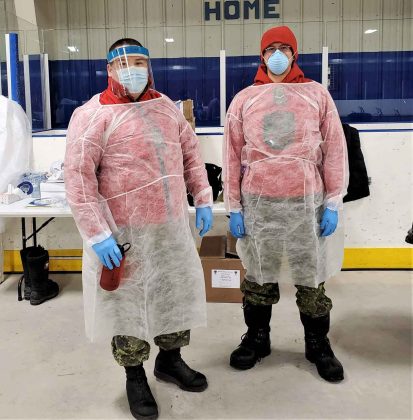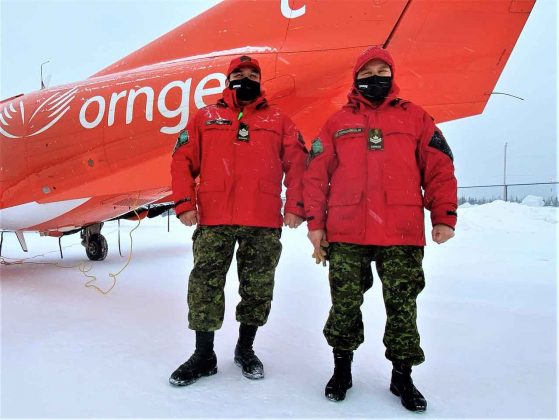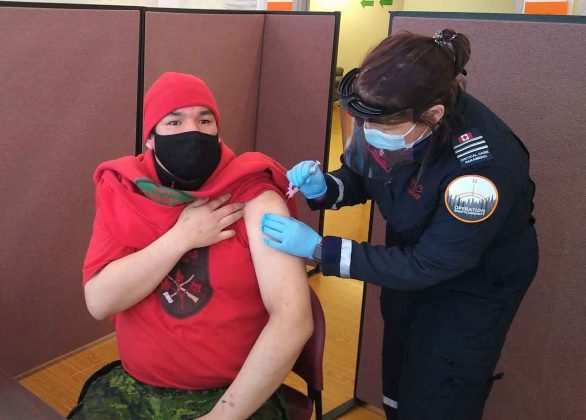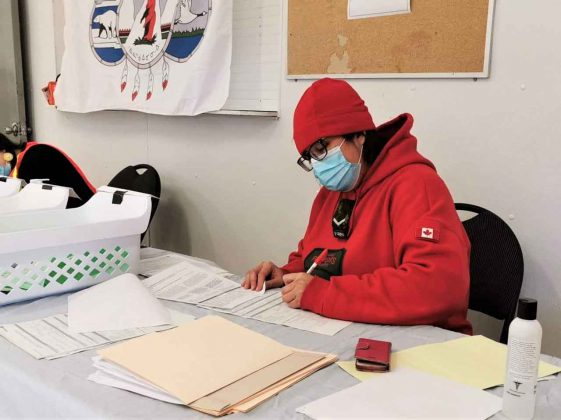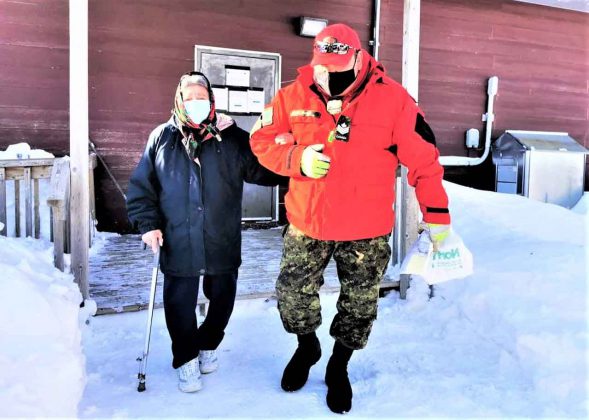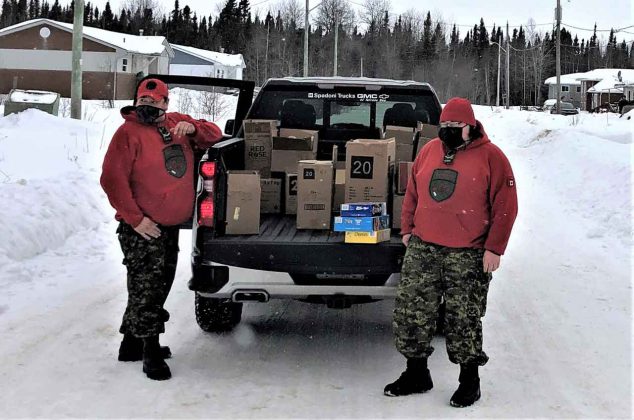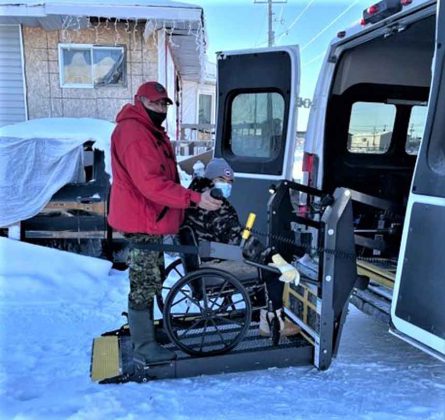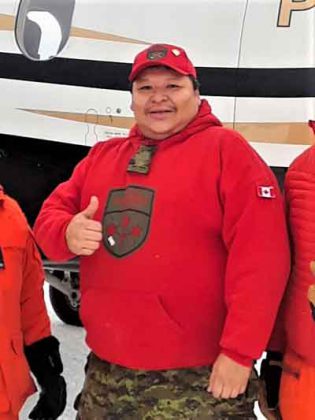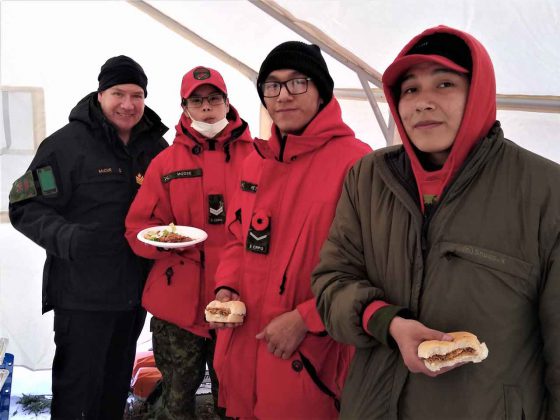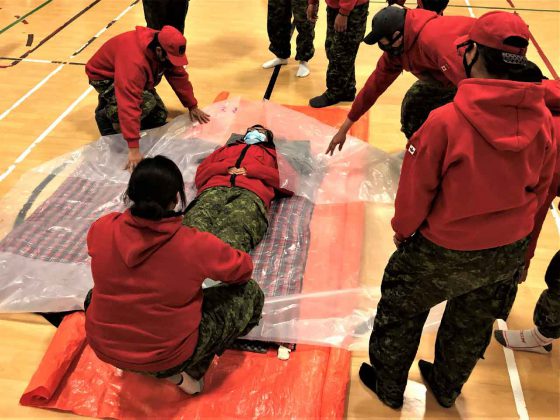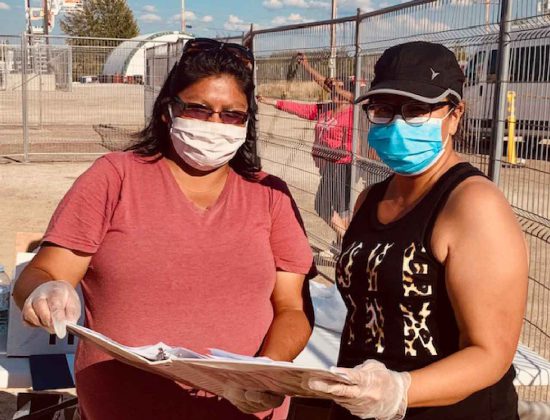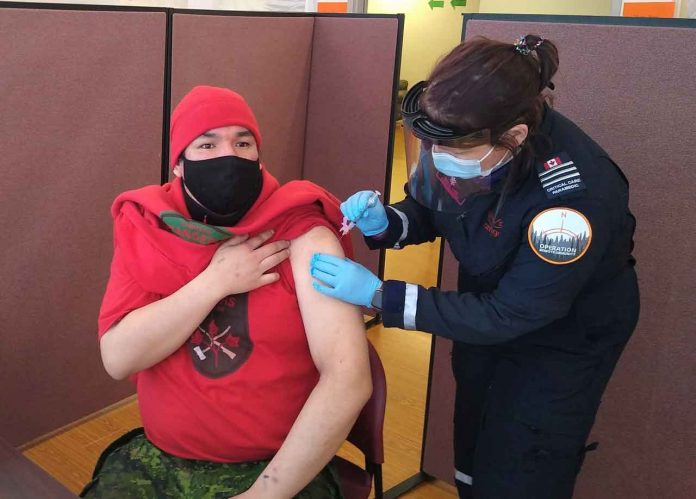
The Canadian Rangers of Northern Ontario went on active service on April 3 last year to help combat the COVID-19 crisis.
They have since completed the busiest year in their history in the province.
“At one time we had more than 170 Canadian Rangers on active duty,” said Lieutenant-Colonel Shane McArthur, the commanding officer of the 3rd Canadian Ranger Patrol Group, which commands the Canadian Rangers of Ontario from its headquarters at Canadian Forces Base Borden, near Barrie.
The unit has about 600 Rangers, who are part-time army reservists, in 29 First Nations across the Far North of Ontario. Most of them are remote and isolated “fly-in” communities with no year-round road access.
“I would say 40 to 45 per cent of the Rangers volunteered in one capacity or another for a period of time in the past year,” Lt-Col McArthur said. “That’s about 250 in total.”
For many recent months 3CRPG was the most active unit on domestic operations in the Canadian Armed Forces, receiving accolades from Nishnawbe-Aski Nation, the minister of national defence, and top military commanders. The prime minister commented on its Rangers in nationally broadcast media conferences.
The Rangers assisted Ornge, the province’s air ambulance and emergency medical service, in providing COVID vaccines to 34 First Nations in Northern Ontario.
They also responded to a number of other emergencies while supporting the fight against COVID.
They played a leading role when Neskantaga First Nation evacuated most of its population to Thunder Bay during a tainted water crisis. Rangers from several First Nations helped keep the nearly deserted community functioning by performing a range of duties in it over a period of 57 days.
They assisted in the evacuation of Eabametoong First Nation when it was threatened by a forest fire.
They played a leading role in supporting Muskrat Dam First Nation when its diesel generators broke down in winter.
They saved lives in numerous search and rescue missions for missing hunters and residents of First Nations.
At the same time the Rangers maintained much of their training schedules.
None of the work the Rangers achieved in Northern Ontario could have been achieved without the dedicated work of the headquarters staff at CFB Borden, said Lt-Col McArthur.
“The headquarters staff accomplished the near impossible,” he said. “They are the people who plan, organize, and support and sustain our efforts. What we do is a whole team effort that allows the Rangers to do what they do in the North.
“Since April 3 of last year we have had an exceptional and historic year. What the Rangers and the headquarters staff have achieved in that time should make them proud of themselves. I know I am proud of them.”
(Sergeant Peter Moon is the public affairs ranger for 3CRG at CFB Borden.)

